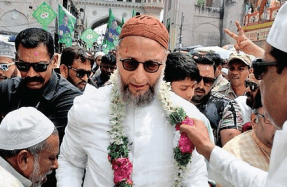WHO IS (NOT) A CITIZEN?

ON NOVEMBER 27 LAST YEAR, BANGLADESH CRICKETER SAIF Hasan was at the Kolkata airport, waiting to fly back home after a Test series in India, when he realised to his horror that his visa had expired two days back. He had to pay a fine of Rs 21,600 to get exit clearance. Now here’s the rub. If Hasan had not been a Muslim, he could have got away with a fine of just Rs 100. There is no coherent official explanation for this, but the Union government in January 2019 announced a huge cut in fines for minority community travellers—Hindu, Buddhist, Christian, Sikh, Jain and Parsi from Bangladesh, Pakistan and Afghanistan—who had overstayed.
This curious tweak in regulations wasn’t just an indirect encouragement to minorities from these three Muslim-majority countries to migrate to India, but also a precursor to the Citizenship (Amendment) Act, or CAA, 2019. The contentious act has raised questions about violations of the Constitution and India’s secular ethos while also creating a deep schism on religious and ethnic lines. More importantly, the national outrage against the act—primarily expressed in protests led by students and the common people—has emerged as the most challenging crisis Prime Minister Narendra Modi’s BJP-led government has faced since it first came to power in 2014.
And it was an avoidable, self-inflicted wound. Bolstered by the feeble opposition to other controversial legislative decisions such as the criminalisation of triple talaq and abrogation of Article 370, Union home minister Amit Shah used the party’s brute majority in Parliament to ram through the CAA. Instead of building consensus and involving all stakeholders—the public, Opposition parties and neighbouring countries—he declared that CAA reflected India’s moral obligation to provide shelter to “crores of minorities persecuted in Islamic countries”, an assertion that has angered friendly neighbours like Bangladesh and Afghanistan. The discontent was further fuelled by Shah’s provocative references to a nationwide National Register of Citizen (NRC). “Understand the chronology, first we will bring the CAA and after that the NRC,” he declared.
Taking the home minister at his word, critics of the government say the CAA will legalise all non-Muslim immigrants in the country. It also says the NRC, when rolled out, will be used to isolate and harass Muslims, to further the greater project of the. The timing of the CAA, too, couldn’t have been worse—within six months of Assam’s NRC, which left 1.9 million people looking at a stateless future. Soon, even some allies, uncomfortable over the CAA, were cautioning the Modi government against the NRC. A brutal crackdown on protests took 21 lives in BJP-ruled Uttar Pradesh—politically India’s most significant state—prompting PM Modi to belatedly distance his government from the NRC.
You’re reading a preview, subscribe to read more.
Start your free 30 days





